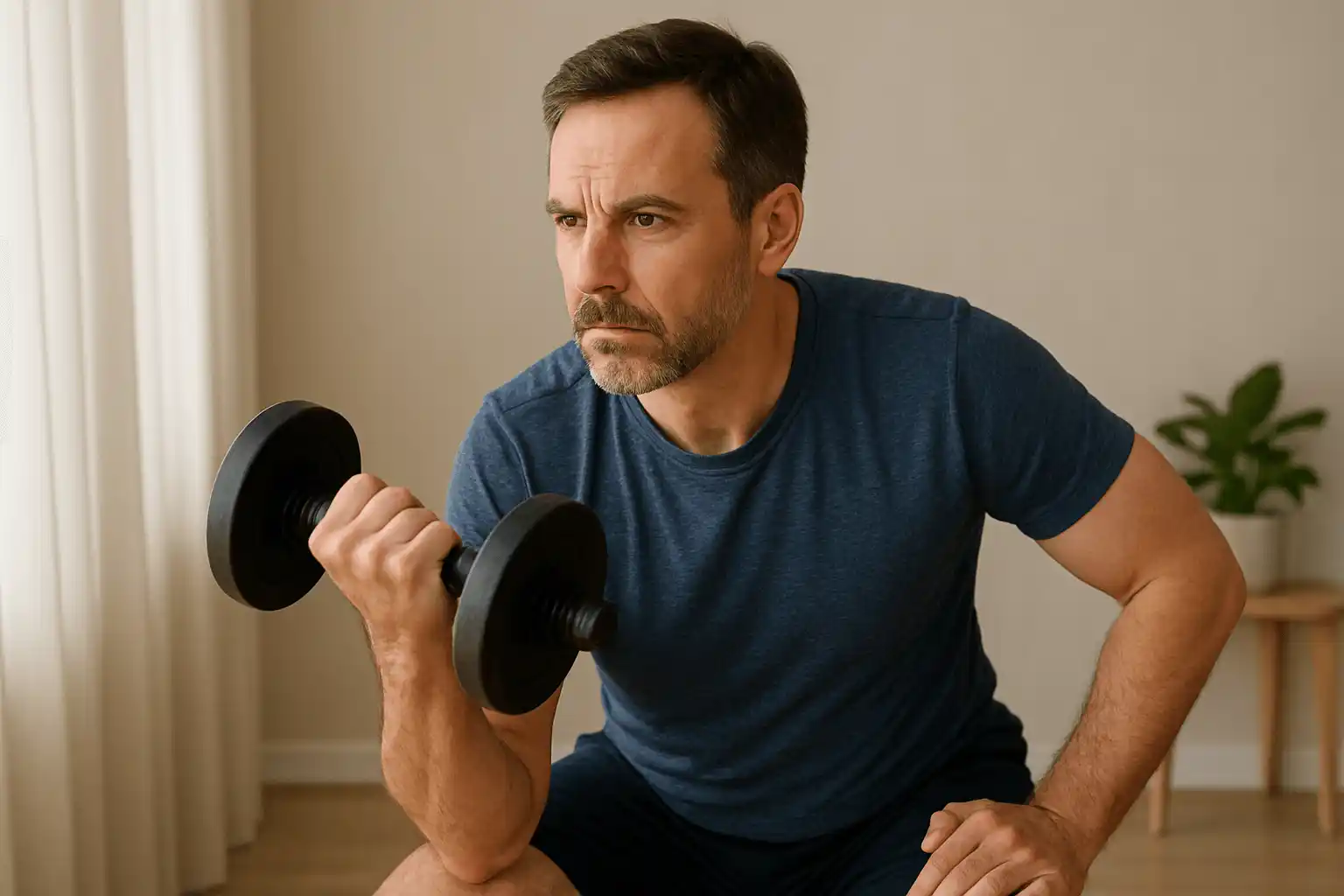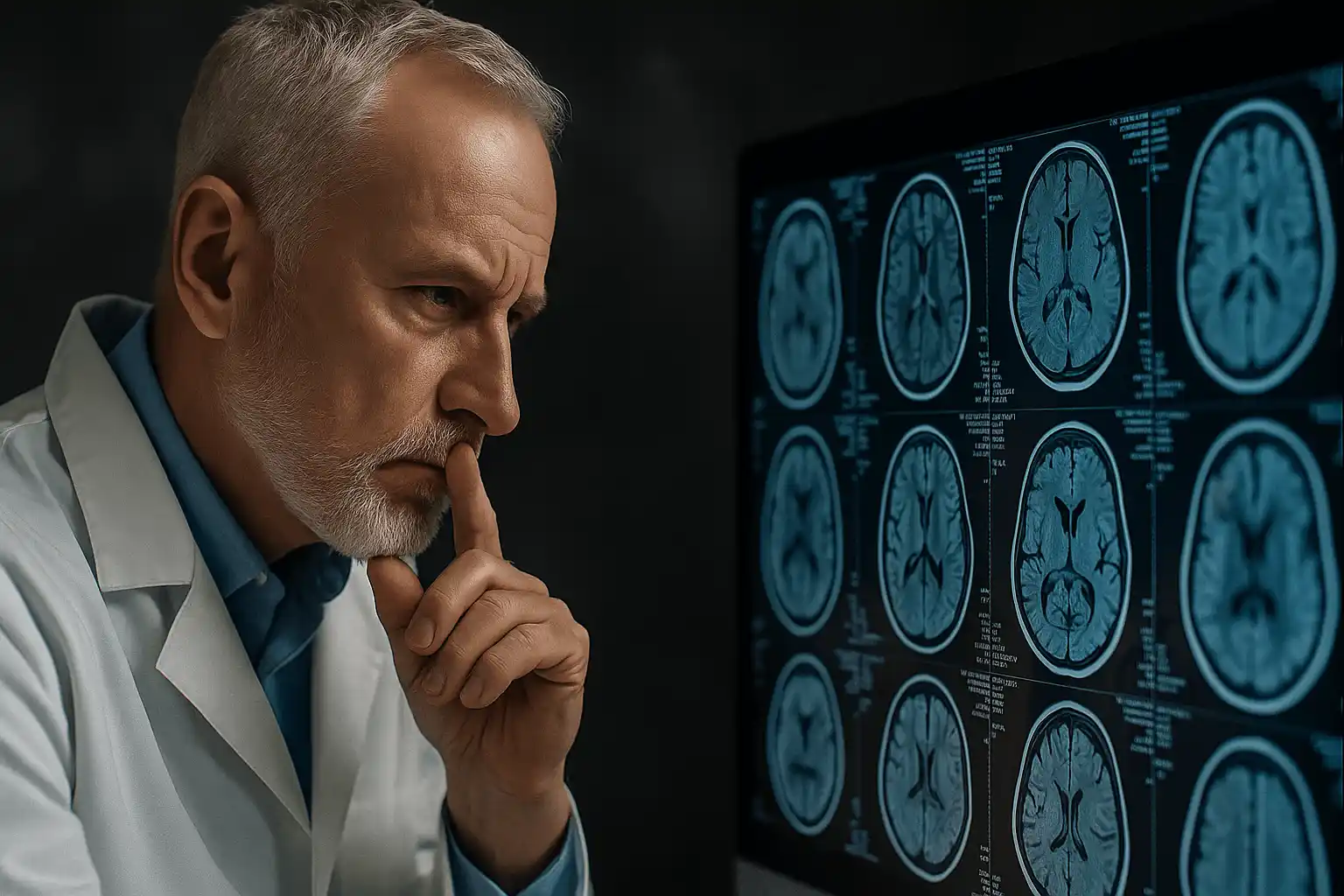These Recovery Stories Will Change How You Think About Brain Injury
There are moments in a medical professional's career that remind you exactly why you chose this path. For Dr. Joseph Schneider, that moment came at a wedding this past weekend. Not just any wedding, but the celebration of a young man whose life he helped save over a decade ago. Watching his former patient dance with his beautiful bride, Dr. Schneider was transported back to a much darker time when this same young man's future looked uncertain at best.

About This Blog
There are moments in a medical professional's career that remind you exactly why you chose this path. For Dr. Joseph Schneider, that moment came at a wedding this past weekend. Not just any wedding, but the celebration of a young man whose life he helped save over a decade ago. Watching his former patient dance with his beautiful bride, Dr. Schneider was transported back to a much darker time when this same young man's future looked uncertain at best.
The groom had suffered a severe hockey concussion in eighth grade that derailed his entire life for 18 months. What began as a sports injury spiraled into a medical nightmare of chronic migraines, debilitating fatigue, and an inability to attend school. Hospital visits became routine as medical staff administered IV treatments for headaches that refused to respond to conventional care. But perhaps the most devastating aspect of his journey wasn't the physical symptoms. It was the widespread disbelief that his suffering was real.
The Invisible Struggle
Brain injury patients face a unique form of medical trauma that extends far beyond their neurological symptoms. As Dr. Schneider explains, people began to suspect this accomplished student and exceptional athlete was fabricating his condition to avoid school responsibilities. The medical establishment initially disagreed with Dr. Schneider's concussion diagnosis, adding months of delay to proper treatment while a young man's academic and athletic future hung in the balance.
This scenario plays out daily across medical offices nationwide. Brain injury symptoms, particularly those affecting cognitive function, energy levels, and emotional regulation, remain largely invisible to outside observers. Unlike a broken bone or visible wound, the complex cascade of neurological dysfunction following head trauma can't be captured in a simple X-ray or blood test. Family members, teachers, coaches, and even medical professionals may question whether symptoms are psychosomatic or exaggerated, leaving patients feeling isolated and desperate for validation.
The psychological impact of this disbelief compounds the already significant challenges of brain injury recovery. Patients must not only navigate their neurological symptoms but also defend the legitimacy of their suffering to skeptical family members and medical providers. This additional stress can actually worsen recovery outcomes by triggering inflammatory responses that further damage healing neural tissue.
Why Functional Neurology Succeeds
When conventional treatments failed this young hockey player, his parents made a decision that would change his life trajectory. They committed to Dr. Schneider's comprehensive functional neurology program, which addresses brain injury recovery through multiple interconnected approaches rather than treating isolated symptoms. This decision proved transformative. The young man not only returned to school but went on to complete college, establish a successful career, and build the loving relationship that brought him to the altar.
Dr. Schneider emphasizes that segmented care approaches, focusing on individual aspects of brain function in isolation, consistently fail to produce lasting recovery. The brain operates as a master control system that governs not just cognitive function but also the endocrine and immune systems. When brain function improves through targeted neurological rehabilitation, patients often experience improvements across multiple body systems simultaneously.
This comprehensive philosophy extends beyond pure neurology to include functional medicine approaches that address underlying inflammation, nutritional deficiencies, and metabolic dysfunction. Brain tissue requires optimal metabolic support to heal effectively, making the combination of functional neurology and functional medicine far more effective than either approach alone. This integrated strategy explains why Dr. Schneider's patients often experience recoveries that seem impossible through conventional medical care.
Memory Loss to Family Man
The wedding celebration triggered memories of another recovery case that shows the life-changing potential of comprehensive brain injury treatment. A college student participating in ROTC at Drexel University suffered a severe car accident that left him with devastating amnesia and significant autonomic dysfunction. His memory loss was so severe that he couldn't remember events happening within the same hour, forcing him to maintain detailed notes and journals just to function on a basic level.
The young man had lost access to fundamental memories that define personal identity. He couldn't remember his own brothers or significant events that happened in high school. Combined with severe vertigo and dysautonomia that caused his heart rate to fluctuate wildly during rehabilitation exercises, his condition seemed hopeless by conventional medical standards. His college career appeared over, and his future looked bleak.
After six months of intensive functional neurological treatment, this patient experienced a transformation. His memory began returning gradually, allowing him to reconnect with family relationships and personal history that had been erased by his injury. Today, this former patient is married with four children and worked for years as an orthotic technician in Dr. Schneider's own office. He's living proof that even severe memory loss can be reversible with the right therapeutic approach.
Understanding POTS and Dysautonomia
Both success stories highlight a critical component of brain injury that often goes unrecognized in conventional treatment: autonomic nervous system dysfunction. The autonomic nervous system's primary responsibility includes delivering nutrients and oxygen to brain tissue while maintaining optimal blood flow for neural function. When brain injury disrupts these control mechanisms, patients develop symptoms consistent with Postural Orthostatic Tachycardia Syndrome (POTS) and other forms of dysautonomia.
Dr. Schneider notes that autonomic dysfunction appears as a component in virtually every brain injury case, regardless of the initial cause. Whether the injury stems from trauma, chronic inflammation, or degenerative processes like those seen in Parkinson's and Alzheimer's disease, the autonomic nervous system becomes compromised and requires specific rehabilitation to restore proper function.
This understanding explains why brain injury patients often struggle with symptoms that seem unrelated to their neurological condition. Digestive issues, temperature regulation problems, sleep disturbances, and cardiovascular symptoms all trace back to autonomic dysfunction caused by the original brain injury. Effective treatment must address these autonomic components alongside direct neurological rehabilitation to achieve complete recovery.
Moving Beyond Survival Mode
Perhaps the most important insight Dr. Schneider shares centers on the distinction between surviving and thriving. He describes how brain injury often reduces high-achieving individuals and moves them away from positions of strength and leadership to barely managing basic daily functions. One recent patient exemplifies this devastating transition. A successful businessman who previously managed multiple companies while serving as his family's primary caretaker and meal preparer now tells his businesses not to contact him unless there's an emergency.
This shift represents the true tragedy of untreated brain injury. Patients lose not just specific neurological functions but their entire sense of identity and purpose. The goal of comprehensive brain injury treatment extends far beyond symptom management to restoration of the patient's full life potential. Success isn't measured simply by reduced headache frequency or improved balance, but by the return to meaningful work, satisfying relationships, and active participation in life.
Dr. Schneider's wedding celebration served as a reminder that complete recovery remains possible even in seemingly hopeless cases. The young man who couldn't attend school for 18 months didn't just recover his cognitive function. He rebuilt his entire life trajectory. Similarly, the college student with severe amnesia didn't just regain his memory. He created a thriving family and meaningful career.
The Hope Brain and Body Recovery Center Approach
The success stories shared in this episode reflect the comprehensive treatment philosophy implemented at the Hope Brain and Body Recovery Center. Rather than addressing brain injury through a single therapeutic approach, the center integrates functional neurology with functional medicine to address all factors contributing to neurological dysfunction. This multidisciplinary strategy recognizes that brain healing requires optimal metabolic support, reduced inflammation, and targeted neurological rehabilitation working in concert.
Dr. Schneider's 37 years of experience treating complex neurological cases has taught him that lasting recovery requires patience, comprehensive assessment, and individualized treatment protocols. Each patient presents a unique combination of neurological deficits, metabolic dysfunction, and life circumstances that must be addressed through carefully coordinated interventions.
The center's approach begins with thorough functional assessments that identify specific areas of neurological weakness and metabolic dysfunction. Treatment protocols are then designed to address these findings through targeted exercises, nutritional support, and various therapeutic modalities. Progress is monitored through objective measurements, allowing for protocol adjustments that optimize each patient's recovery trajectory.
A Message of Hope for Current Patients
Dr. Schneider's weekend reflection culminates in a message of hope for patients currently struggling with brain injury, POTS, or other neurological conditions. His success stories show that recovery remains possible even when conventional medicine offers little hope. The key lies in finding practitioners who understand the interconnected nature of brain function and metabolic health, and who are willing to invest the time and expertise necessary for comprehensive treatment.
For patients feeling trapped in survival mode, these stories offer evidence that thriving remains achievable. The journey might seem impossible, but it represents the potential that exists within comprehensive functional neurology treatment. The difference between surviving and thriving often comes down to finding the right therapeutic approach and committing fully to the recovery process.
As Dr. Schneider notes, the growing epidemic of brain injury cases makes these success stories more relevant than ever. This includes everything ranging from sports concussions to degenerative diseases to COVID-related neurological complications. Each patient who transitions beyond survival mode serves as inspiration for others facing similar challenges and proof that the human brain's capacity for healing extends far beyond what conventional medicine typically recognizes.
The Ripple Effect of Recovery
The wedding celebration that inspired this episode represents more than just individual recovery. It shows the ripple effect that successful brain injury treatment creates throughout families and communities. A young man who might have remained disabled for life instead became a productive member of society, a loving husband, and potentially a future father. His recovery didn't just change his own trajectory but impacted everyone in his circle of influence.
This broader perspective on brain injury treatment reveals why comprehensive approaches like those employed at the Hope Brain and Body Recovery Center matter so much. Each successful recovery represents not just symptom resolution but the restoration of human potential. These patients go on to contribute to their families, communities, and society in ways that would have been impossible without effective treatment.
For practitioners working in functional neurology and functional medicine, these stories serve as reminders of why this work matters so much. Beyond the technical aspects of neurological rehabilitation and metabolic optimization lies the fundamental goal of helping people reclaim their lives and fulfill their potential. The satisfaction Dr. Schneider describes at seeing his former patient celebrate his wedding as the ultimate reward for dedicating one's career to comprehensive brain injury treatment.
If you or someone you love is struggling with brain injury, POTS, or related neurological conditions, these stories offer hope that recovery remains possible. The journey might require time, commitment, and the right therapeutic approach, but the destination, a fully restored life, makes every effort worthwhile.
Connect with Dr. Joseph Schneider:
Website: Hope Brain and Body Recovery Center
LinkedIn: Joseph Schneider
YouTube: hopebrainbodyrecoverycenter
Instagram: @hopebraincenter_
Facebook: Hope Brain and Body Recovery CenterRelated Blog
Duis mi velit, auctor vitae leo a, luctus congue dolor. Nullam at velit quis tortor malesuada ultrices vitae vitae lacus. Curabitur tortor purus, tempor in dignissim eget, convallis in lorem.





Comments